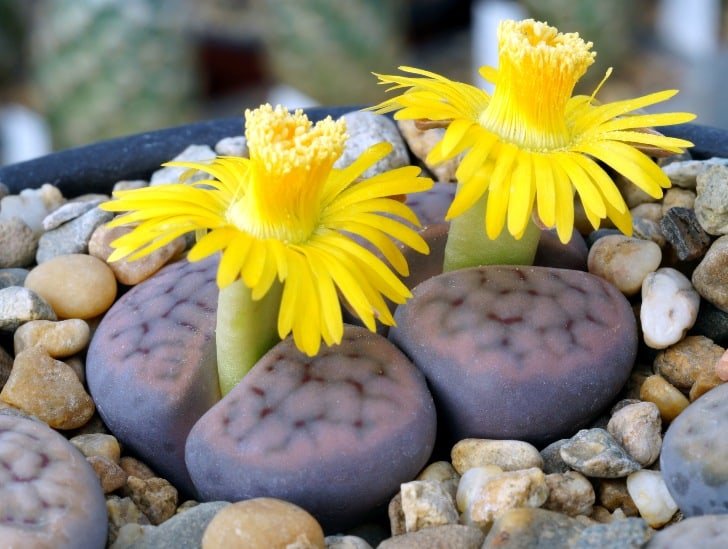The Danger of Illegal Poaching of Lithops and Why Cultivation Matters
Lithops, often called “living stones,” are among the most fascinating and unique plants in the world. Native to the arid regions of South Africa and Namibia, these small, succulent plants have evolved to mimic the rocks and pebbles of their environment, a clever disguise to protect against herbivores. However, their captivating appearance has also made them a target for illegal poaching, posing a significant threat to their survival in the wild.
The Impact of Illegal Poaching:
Illegal poaching of lithops is driven by the growing demand in the houseplant market. Collectors and enthusiasts around the world are drawn to their unusual shapes and vibrant patterns, often paying a premium for rare species. Unfortunately, this demand has fueled unsustainable harvesting practices. Poachers strip wild populations of these slow-growing plants, leaving their ecosystems vulnerable to erosion and disrupting the delicate balance of desert habitats.
Some species of lithops are already at risk of extinction due to habitat loss and climate change. Illegal poaching exacerbates these pressures, pushing these plants closer to the brink. What’s more, poached lithops often fail to thrive outside their natural environment, leading to high mortality rates and further waste of these precious resources.
The Importance of Cultivation & The Houseplant Industry:
The houseplant industry has a crucial role to play in combating the illegal poaching of lithops. By increasing their cultivation through ethical and sustainable methods, growers can meet market demand without harming wild populations. Cultivated lithops are grown from seed or propagated in nurseries, ensuring that their harvest does not deplete natural ecosystems.
Supporting cultivated lithops also benefits consumers. Nursery-grown plants are typically hardier and better adapted to life as houseplants, making them easier to care for and more likely to thrive. Additionally, purchasing cultivated plants helps create a sustainable market, encouraging growers to invest in ethical practices and reducing the incentive for illegal poaching.
How You Can Help:
As a houseplant enthusiast, you can take steps to protect lithops and support sustainable practices:
Buy from reputable sources: Look for growers and retailers who can verify that their plants are cultivated, not wild-collected.
Educate yourself: Learn about the origins of the plants you purchase and the impact of your choices on the environment.
Spread awareness: Share the importance of protecting lithops and other endangered plants with your community.
Support conservation efforts: Donate to or volunteer with organizations dedicated to preserving desert ecosystems and combating illegal plant poaching, like the Desert Botanic Garden, The Center for Plant Conservation, and the IUCN CSSG.




